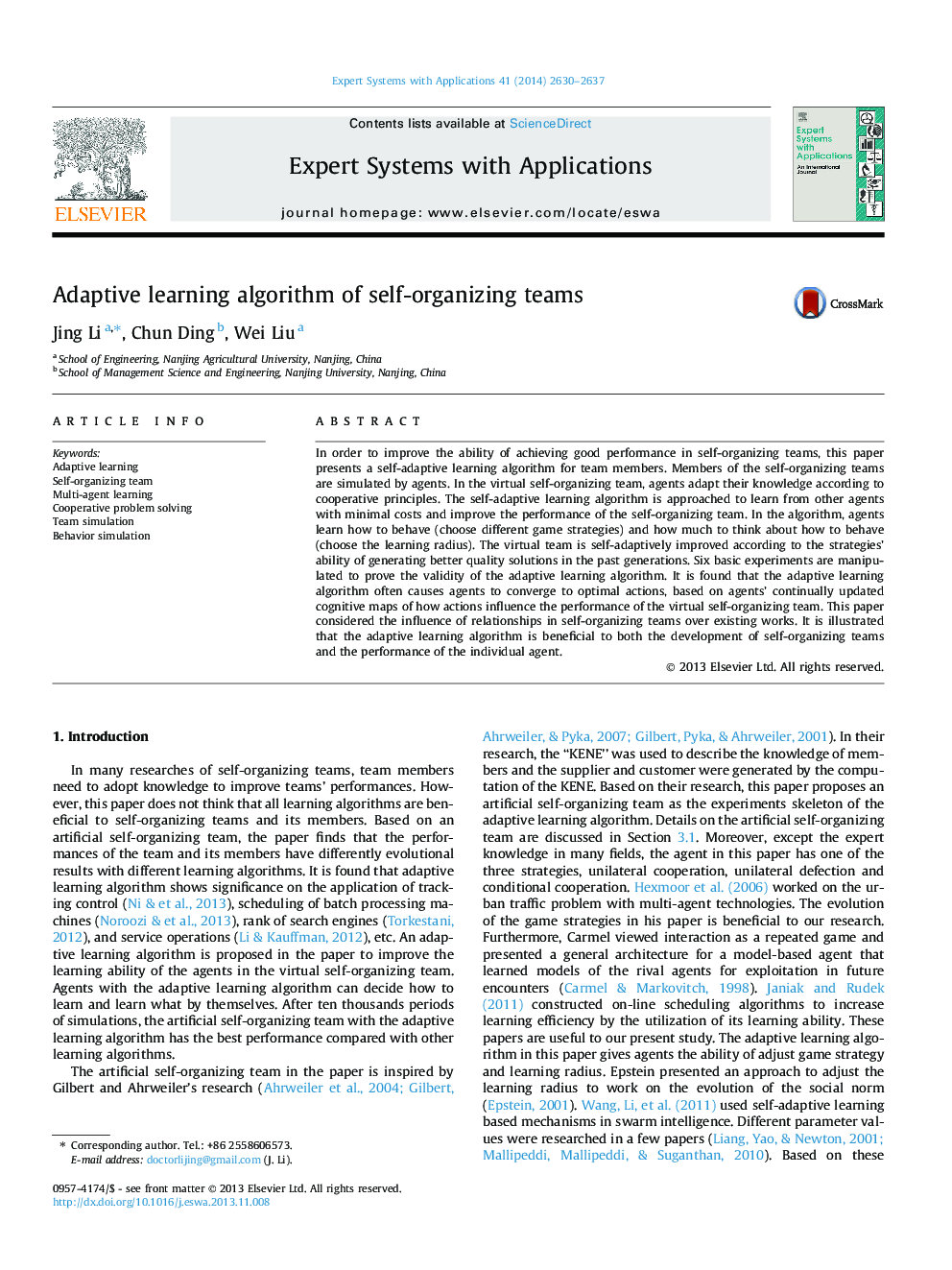| Article ID | Journal | Published Year | Pages | File Type |
|---|---|---|---|---|
| 383981 | Expert Systems with Applications | 2014 | 8 Pages |
•The algorithm is approached to improve the performance of the self-organizing team.•Virtual members learn how to behave and how much to think about how to behave.•The influence of relationships in teams is considered over existing works.
In order to improve the ability of achieving good performance in self-organizing teams, this paper presents a self-adaptive learning algorithm for team members. Members of the self-organizing teams are simulated by agents. In the virtual self-organizing team, agents adapt their knowledge according to cooperative principles. The self-adaptive learning algorithm is approached to learn from other agents with minimal costs and improve the performance of the self-organizing team. In the algorithm, agents learn how to behave (choose different game strategies) and how much to think about how to behave (choose the learning radius). The virtual team is self-adaptively improved according to the strategies’ ability of generating better quality solutions in the past generations. Six basic experiments are manipulated to prove the validity of the adaptive learning algorithm. It is found that the adaptive learning algorithm often causes agents to converge to optimal actions, based on agents’ continually updated cognitive maps of how actions influence the performance of the virtual self-organizing team. This paper considered the influence of relationships in self-organizing teams over existing works. It is illustrated that the adaptive learning algorithm is beneficial to both the development of self-organizing teams and the performance of the individual agent.
